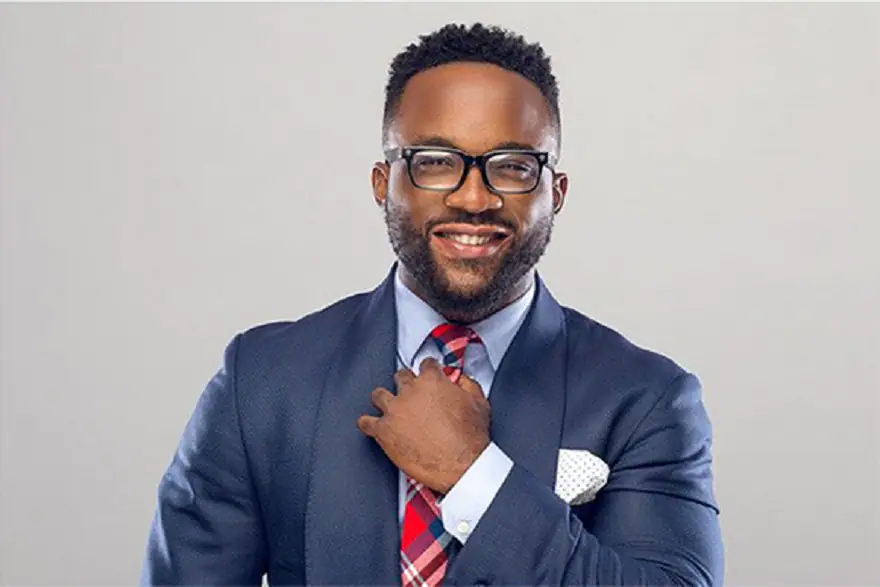Born Iyanya Onoyom Mbuk in Calabar in 1986, Iyanya a well renowned afrobeat hitmaker was one of the biggest afrobeat artists in the early 2010’s.
His voice dominated airwaves from Lagos to London, and his dance moves had crowds chanting his name in unison. He wasn’t just a pop star he was a cultural wave.
But today, Iyanya walks a quieter path. Gone are the billboards, the back-to-back hits, the flashy endorsements. In their place is a man still battling for a second chance. A man wounded by betrayal. A man who learned too late that talent alone doesn’t protect you in the music business. This is not just a story about a fallen star. It’s a warning.
YOU CAN ALSO READ: Dangote Group Commits $3 Billion to Build Fertilizer Plant in Ethiopia, Paving Way for Agricultural Revolution in East Africa
After losing his both parents and elder brother at a tender age But music became his therapy. He sang karaoke in local bars before being encouraged to audition for Project Fame West Africa.
In 2008, he won. His voice smooth, romantic, sincere captured hearts. His debut album ‘My Story’ was filled with passion, but in an industry obsessed with energy and beats, it failed to make a major impact.
At the time, the Nigerian music scene was a fast train of dancehall and pop bangers think Terry G, Timaya, D’banj. Iyanya’s soulful melodies, though beautiful, didn’t fit the commercial mold. Promoters mocked his music as “funeral songs.” He was laughed off stages, called “boring,” and constantly reminded he wasn’t “upbeat enough.” But that only made him hungrier.
Things changed when Iyanya met Obi Franklin, a young, ambitious manager with connections and drive. Together, they formed Made Men Music Group (Triple MG) a label that would transform both their lives. Obi encouraged Iyanya to reinvent his sound. And in 2012, with the release of Kukere, Iyanya became unstoppable. Kukere wasn’t just a hit, it was a cultural earthquake. Suddenly, everyone wanted a piece of Iyanya. Endorsement deals poured in. He was on international tours. Features with Wizkid, Tiwa Savage, Davido, M.I, Flavour, and more followed.
His second album Desire had multiple hit records, and by 2013, he was among the elite in Afrobeats. He was rich, famous and powerful. But not everything glittered behind the scenes.
As the fame grew, so did questions. Iyanya began to feel something wasn’t right with the finances. Despite his stardom, he wasn’t seeing the kind of money he expected especially with the kind of hits he was putting out.
It wasn’t until a casual conversation with Tekno, an artist signed under Triple MG, that the truth began to unravel. Tekno mentioned that one of their hit songs had earned over ₦13 million but Iyanya hadn’t seen a dime.
Interestingly surprised, he decided to dig in due to the rise of so many questions he already had. Iyanya flew to Abuja and visited the Corporate Affairs Commission (CAC) to investigate the ownership of the label he co-founded.
What he discovered devastated him as his name wasn’t there. The company which he believed he owned 50% of had been registered solely under Obi Franklin and his brother. Iyanya had signed co-founder documents. But they were never submitted. He wasn’t legally recognized as an owner. He confronted Obi, who apologized. But the apology wasn’t enough. The betrayal cut deep.
Around the same time, Iyanya’s personal life was falling apart. His highly publicized relationship with actress Yvonne Nelson ended in scandal, accusations of infidelity, and tabloid drama.
Professionally, his 2015 album ‘Applaudise’ underperformed. He left Triple MG the following year, disillusioned and disoriented. The very brand he once carried on his shoulders, he could no longer access its social media accounts. Passwords were changed. Legal threats followed.
He signed briefly with Mavin Records, under Don Jazzy, but it was a temporary lifeline. The music didn’t connect. The fans had moved on. New faces like Tekno, Burna Boy, Mr. Eazi, Runtown had taken over the charts.
By 2020, Iyanya’s name surfaced again not for a comeback, but for a court case. He was accused of car theft involving his former label. Earlier, in 2013, he had been declared wanted for allegedly defrauding an event organizer of ₦1.7 million.
YOU CAN ALSO READ: Inside Lagos’ Bold Tech Agenda: Commissioner Alake Shares Vision
He began to spiral. Depression set in. The weight of betrayal, regret, and failure began to show. He lost weight. He disappeared from the spotlight.
Iyanya has since tried to pick up the pieces. He reconciled publicly with Obi Franklin. They took pictures together. Smiled for the cameras. But the damage was irreversible. “I watched everything I worked for disappear,” he said in a recent interview.
And though he’s still making music still trying to be heard it’s not the same. He’s older and wiser now and no longer believes in just talent or handshakes. He believes in contracts, ownership, legal protection, paperwork.
Iyanya’s story is one every upcoming artist, entrepreneur, and dreamer should know. It’s not just about Afrobeat. It’s about trust, power, and ownership.
Please note that this content is not originally produced by EnterpriseCEO Media Company. It is a transcription of an episode from Teepsoul’ Youtube Platform, and full credit for the original content belongs to him. EnterpriseCEO does not claim ownership of the material; our intention is solely to provide broader access to the insights shared during the conversation.










